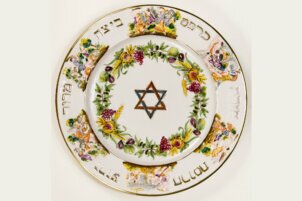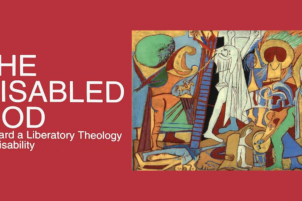Queer and trans disabled folks are at the center of queer trans history and disability history, because the movements incubate and cross pollinate each other. For instance, during the 504 occupation, the owners of the lesbian bar in the East Bay brought shampoo and conditioner and washed people’s hair in an act of tangible solidarity and direct mutual aid. Trans artist and activist Leslie Feinberg’s last collection of work, a photoessay that documented life from their window as a chronically ill person, is another example of this overlap.
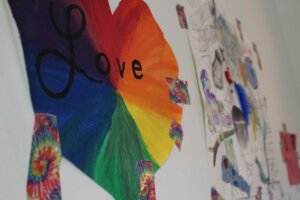 My friend Emet embodied intersectionality. He was a queer trans disabled chronically ill rabbinical student and rabbi. He served on the boards of NCIL and GLSEN. He was a person that people were drawn to, so naturally, a mutual aid network made up of queer trans chronically ill and disabled folks formed around him. The hospice center where Emet died was originally founded to care for HIV/AIDS patients. Whenever I visited, I always imagined the young queer and trans chronically ill networks of care that existed there together before us.
My friend Emet embodied intersectionality. He was a queer trans disabled chronically ill rabbinical student and rabbi. He served on the boards of NCIL and GLSEN. He was a person that people were drawn to, so naturally, a mutual aid network made up of queer trans chronically ill and disabled folks formed around him. The hospice center where Emet died was originally founded to care for HIV/AIDS patients. Whenever I visited, I always imagined the young queer and trans chronically ill networks of care that existed there together before us.
When Emet entered hospice, I was the Faith Coalition Manager for the National LGBTQ Task Force. The National LGBTQ Task Force hosts an annual conference each January called Creating Change. Part of my work involved planning and facilitating all of the faith programming during the conference. I remember leaving for the conference in January 2019 and apologizing to Emet for how long I would be gone because none of us knew how long he had to live. I wondered if he would still be there when I returned.
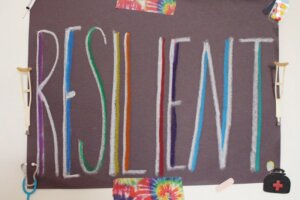 The Creating Change conference included an art studio space where people could create art while they attended the conference. At the end of the conference, I was responsible for helping to pack up the art studio space. There was so much beautiful art left behind and I could not bear to see it placed in the trash. I saw external representations of queer and trans souls in the art. It felt akin to throwing away sacred books. My supervisor and I both took some of the art home with us.
The Creating Change conference included an art studio space where people could create art while they attended the conference. At the end of the conference, I was responsible for helping to pack up the art studio space. There was so much beautiful art left behind and I could not bear to see it placed in the trash. I saw external representations of queer and trans souls in the art. It felt akin to throwing away sacred books. My supervisor and I both took some of the art home with us.
I had an idea for giving this art a second life. I decided to decorate Emet’s hospice room with it. Emet was the most colorful, beautiful, vibrant, bright, glittery rainbow queer trans person. I knew he would want to die surrounded by beauty, and I felt the art I collected would give him that to him. I wanted him to be enveloped in the love of queer and trans people, in the beauty of queer and trans people loving themselves.
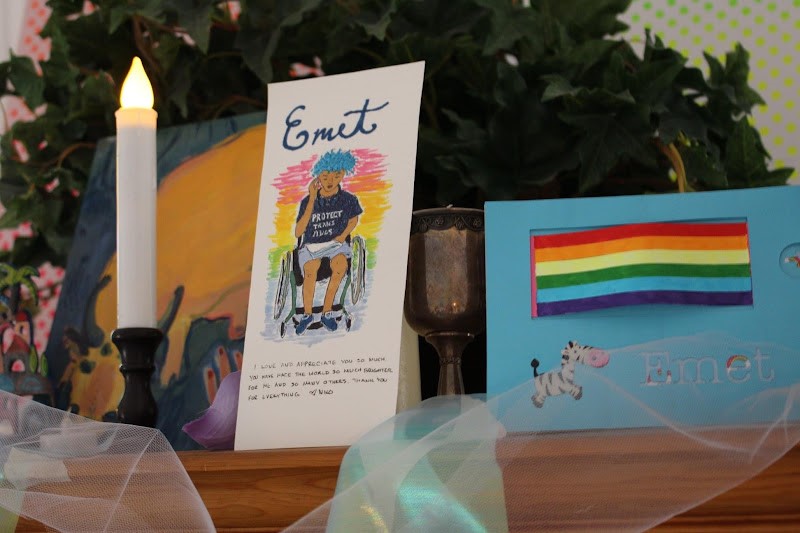 For my capstone project at RespectAbility, I am conducting an oral history project modeled after the ACT UP Oral History Project. I have been interviewing all of my friends who made up Emet’s network of mutual aid. We feel true pride when we can see ourselves through the eyes of our friends, because to see ourselves as our friends see us is to know love. This is what pride means to me. After Emet’s death, our friends each took pieces of the art I had rescued from the conference into their homes. I discovered through the interviews I conducted for the oral history project which pieces had gone to whom and that some people even framed the pieces they chose.
For my capstone project at RespectAbility, I am conducting an oral history project modeled after the ACT UP Oral History Project. I have been interviewing all of my friends who made up Emet’s network of mutual aid. We feel true pride when we can see ourselves through the eyes of our friends, because to see ourselves as our friends see us is to know love. This is what pride means to me. After Emet’s death, our friends each took pieces of the art I had rescued from the conference into their homes. I discovered through the interviews I conducted for the oral history project which pieces had gone to whom and that some people even framed the pieces they chose.
We are living through another mass disabling event as COVID destroys T cells like HIV/AIDS does. As more young people become disabled and we continue to be in a care crisis, we will need new kinds of networks of mutual aid and care for and by disabled people. Emet’s hospice room was in some ways an experiment in networks of care, a model for what could be. This oral history project is an offering to our overlapping movements, and an act of gratitude for the people who made them possible.

